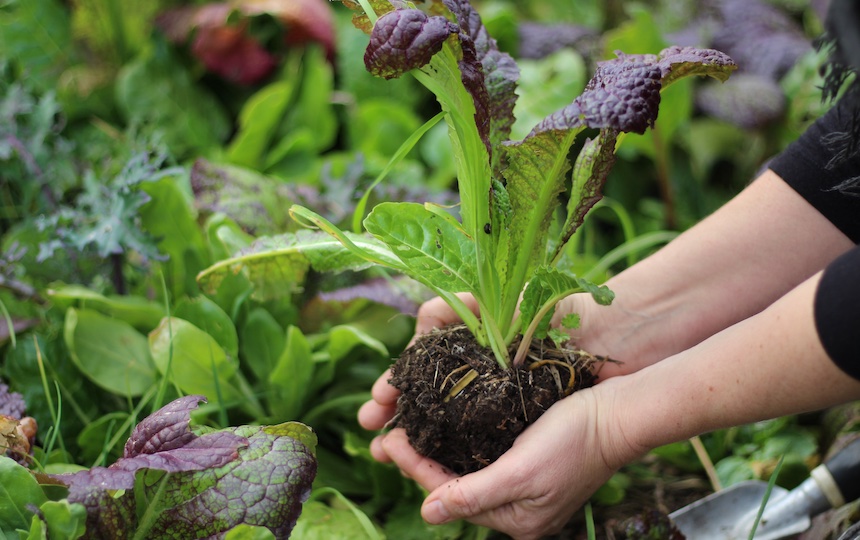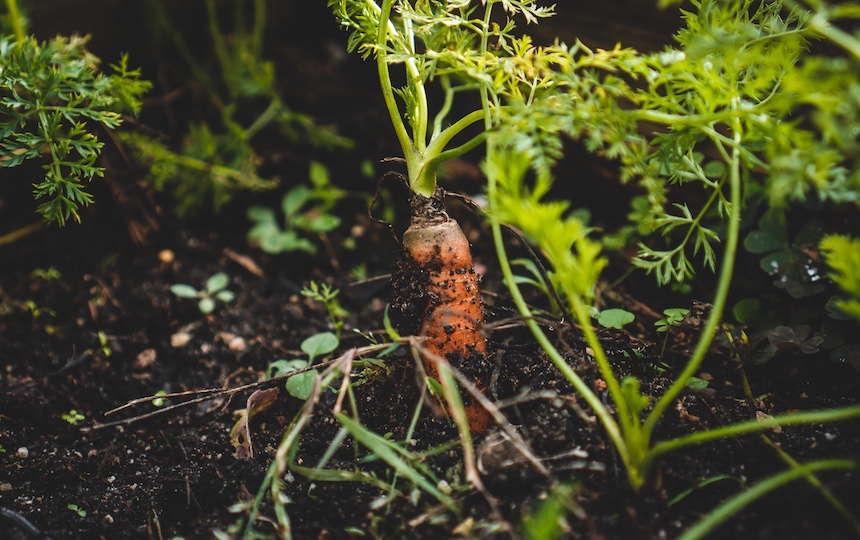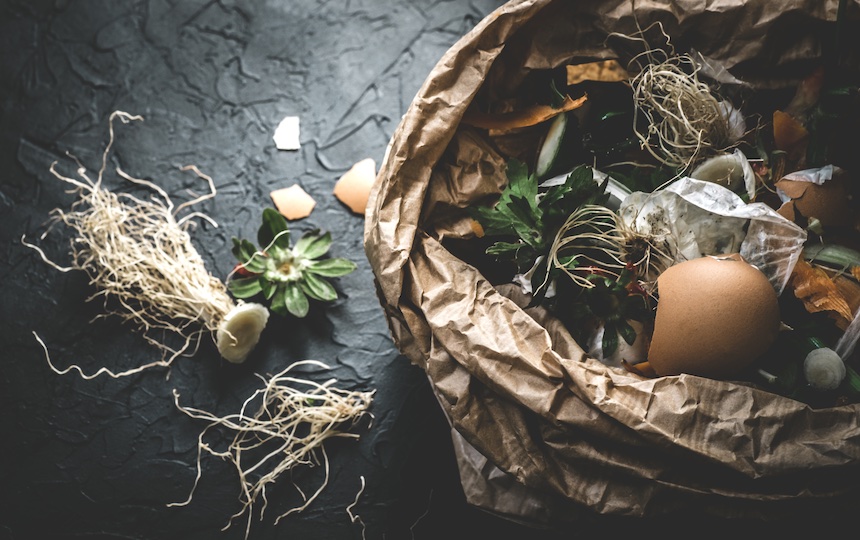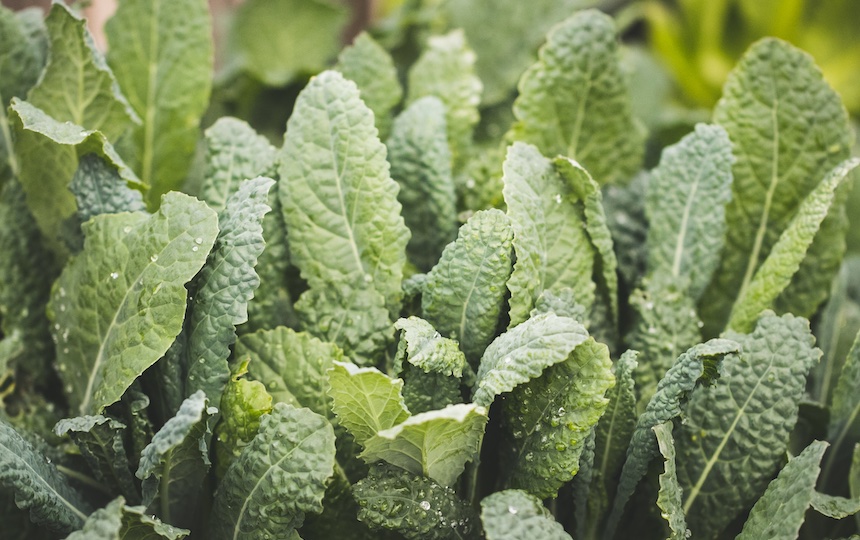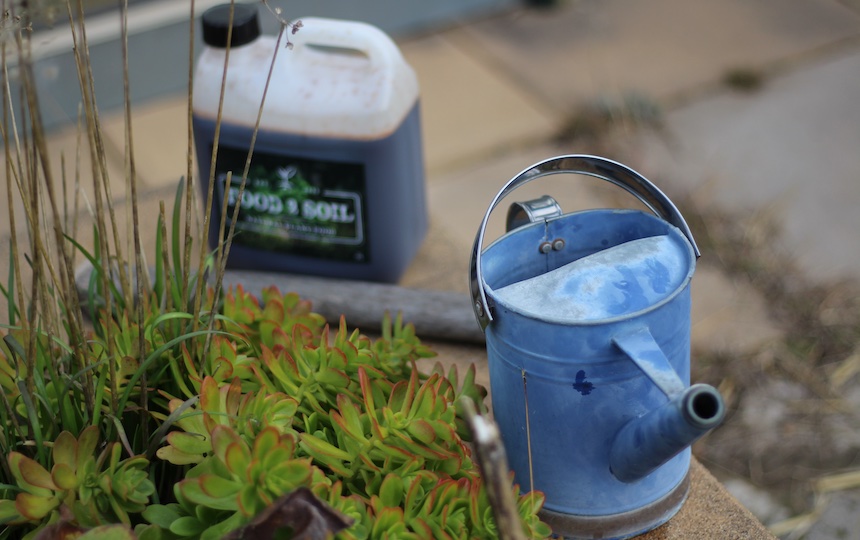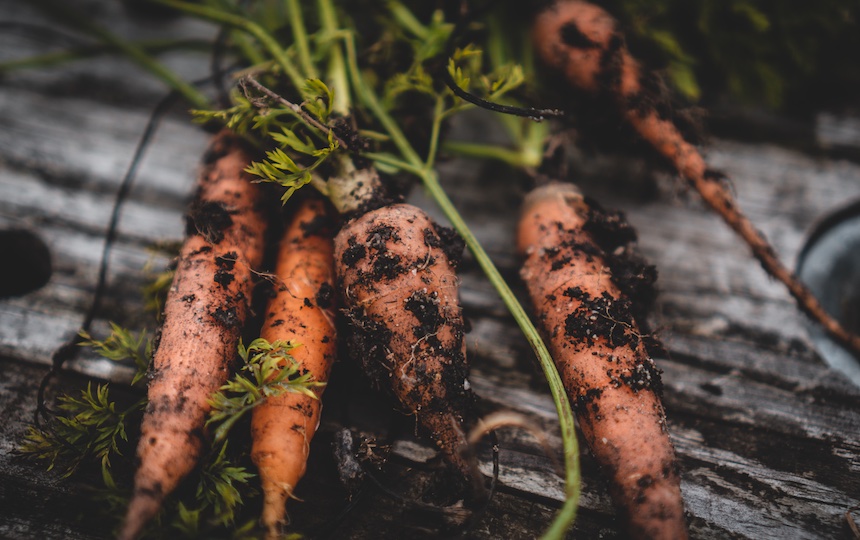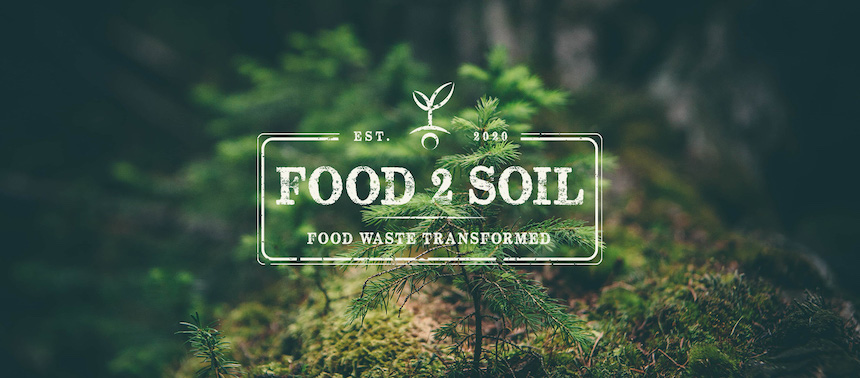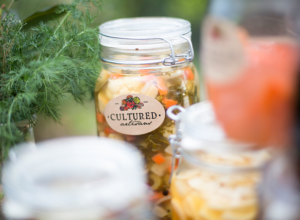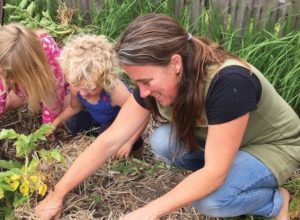Just like our gut, the soil in our gardens needs a rich diversity of microbial life to be healthy.
We all know how important healthy gut flora is for human health, but did you know maintaining healthy gut flora is closely related to the health of our soils? Just like our gut, the soil in our gardens needs a rich diversity of microbial life to be healthy. Therefore it makes far more nutritional sense that the food we eat should be grown in soil that is rich with microbial life.
In our modern and more urbanised lives, where many of us are having less contact with the soil, health issues associated with poor gut health are on the rise. In search for higher efficiencies to feed a growing population, industrialised agriculture and processed foods prioritise quantity over quality, meaning chemicals are introduced to achieve what a healthy and balanced ecosystem could otherwise do on its own. And our soils are paying the biggest price.
Caring for soil
By turning our attentions to building the health of the soil in our own vegie patches, our health and that of our families will be the biggest beneficiaries. By caring for and having our hands in the soil in which we grow our food, means not only are we in contact with the all-important microbes within it, but we’re also reaping the nutritional benefits of eating food grown in healthy soils.
Soil itself is an entire healthy ecosystem with bacteria, fungi and larger living organisms all living in harmony with each other. We need to create an environment that supports all living organisms by feeding the soil in a way that encourages all of these important lifeforms.
Encouraging life
Like the human gut, your soil needs beneficial microbes to function at its best. These organisms perform different functions that allow the soil to breathe, eat and cycle nutrients. The difference between dirt and soil is the presence of living organisms. Without life, soil is biologically dead, meaning not only will plants struggle to grow and be hugely susceptible to pests and diseases, but it will lose all structure and be easily blown away.
Research shows that there are more living organisms in a handful of healthy soil than there are people on earth. This is similar to the gut microbiome; though we can’t see them, microbes dominate the inside of the digestive system, playing vital roles in human health, disease prevention, mental health and longevity.
Championing diversity
People who live in microbial-diverse environments such as rural areas and farms are proven to have fewer allergies, chronic diseases and better mental health compared to their urbanised counterparts.
Our gardens aren’t any different; monocultures lack diversity and soil health is depleted as a result. Healthy soils need a healthy ecosystem which can only occur as a result of rich diversity. Human and plant health isn’t one dimensional, it is interconnected with surrounding environments, and achieving the best of both starts with healthy soil.
6 ways to improve your soil health
There are several things that can be done to promote healthy soil, including:
1. Add organic matter
Adding compost or manure to the soil can improve its structure, water-holding capacity and nutrient content. Organic matter also provides a food source for the beneficial organisms that live within the soil.
2. Boost your soil biology
Like the human gut, soil needs microbes to function at its best. Adding organic inputs such as compost, worm tea and/or bio-fertilisers (like Food2Soil) provides a food source for beneficial organisms which live in soil and help maintain soil structure, reducing soil loss.
For those who don’t have space or time to compost or worm farm, adding a bio-fertiliser is an easy alternative to ensure your soil is teeming with life.
3. Don’t turn it
Excessive tillage can disrupt the structure of soil and harm the beneficial organisms that live within it. Minimising tillage, or using no-dig farming practices, can help to build and maintain soil health.
4. Rotate crops and embrace diversity
Planting a variety of crops and rotating them each season can help to prevent the build-up of pests and diseases in the soil. It can also help to maintain a diverse community of beneficial organisms.
5. Don’t leave the soil bare
Cover crops such as legumes or grasses can be planted to protect the soil from erosion and to improve its nutrient content.
6. Know your soil
Regular soil testing can help to identify nutrient deficiencies and pH imbalances. Check out our article on soil testing here.
This is article is a paid partnership between Pip Magazine and Food2Soil.
Food2Soil produces an organic, biologically-alive fertiliser made from recycled food waste. This means it contains living microbes which can help transform lifeless dirt into productive soil.
Co-founders Josie Grenfell and Annabel Schweiger have a range of experience in food, nutrition, permaculture, market gardening, sustainability and land regeneration.
“We take these otherwise wasted materials, add our own inoculum and ferment it, much like you do with wine and beer,” explains Josie. “That way you end up with the nutrients from waste being turned into bioavailable food for plants, as well as concentrated amounts of beneficial bacteria and fungi. We believe healthy soil is part of the solution for a better future for our children and generations to come.”

